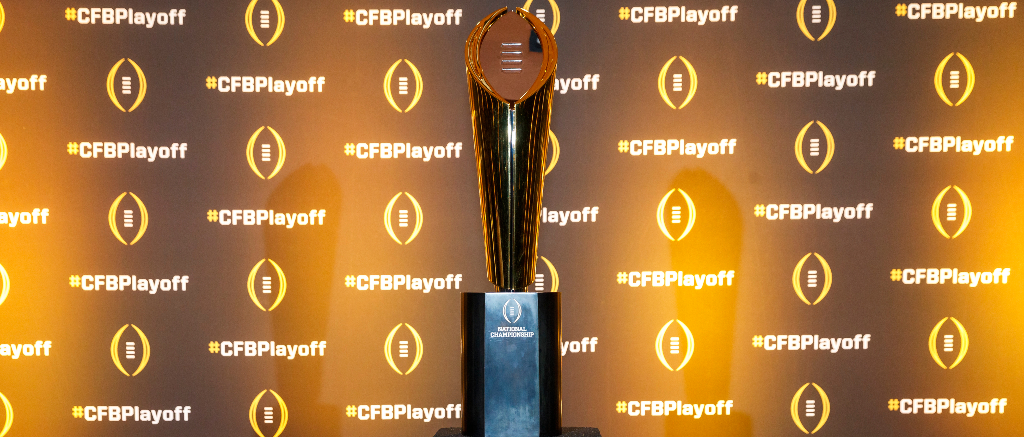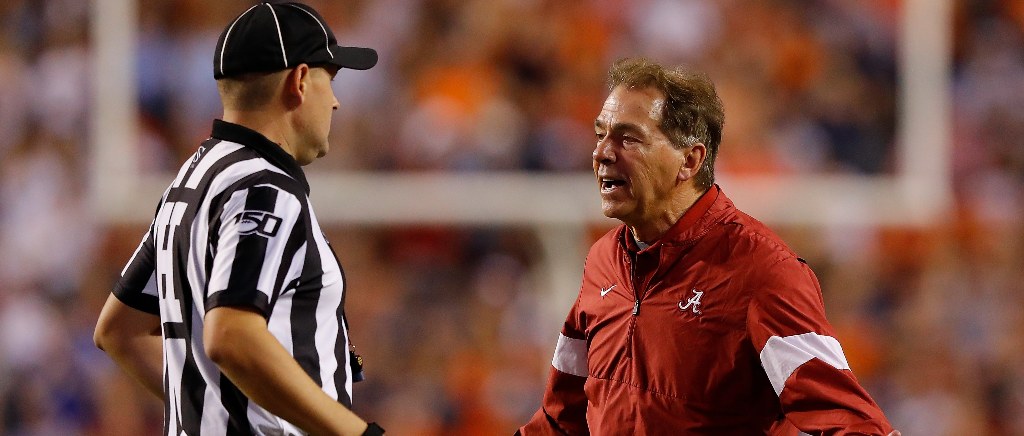
A few weeks ago, Anthony Fauci, the head of the National Institute of Allergy and Infectious Disease, gave an exceedingly rare positive bit of news during a testimony to the House Energy and Commerce Committee. Fauci works in a field that is in inherently pessimistic, but when discussing a potential vaccine for COVID-19, he painted a relatively rosy picture about what the future might hold.
“We feel cautiously optimistic, based on the concerted effort and the fact we are taking financial risks — not risks to safety, not risks to the integrity of the science, but financial risk to be able to be ahead of the game — so that when, and I believe it will be when and not if, we get favorable candidates with good results, we will be able to make them available to the American public,” Fauci said, per Vox. “It would put us at the end of this calendar year and the beginning of 2021.”
Fauci repeated his optimism a little less than a week ago when he did a Q&A with the Journal of the American Medical Association and said the hope is for 100 million doses of a vaccine by the end of 2020 and “a couple hundred million doses” that could be made available “by the beginning of 2021.”
You did not click on this story to read some doofus talk about vaccines, nor did you click on it to get brought up to date on stuff Fauci said, although it’d be cool if these updates brought you some sort of sense of relief amid the myriad of extremely bad news that comes on an hourly basis. No, you clicked on this because you want to read about college football. What I would like to say is that is you consider the previous couple of statements from the head of the NIAID as you read the next sentence, which we will get to right now.
This upcoming college football season should not happen as it is currently scheduled. This does not mean getting rid of non-conference games, nor does it mean delaying the start of the season until, say, October. No, this means moving the college football season to the spring.
The next however many hundred words I write all come with a caveat: I am not a person whose livelihood is directly tied to college football happening. I am a season-ticket holder for my alma mater’s football program, and I am someone who likes watching college football a lot. I am not a coach, or a comms person, or a member of an event staff, or a concessions person, or anyone else whose bills are paid because of this multi-billion dollar industry generating the revenue it has to generate. There’s, of course, a problem within that, because the athletes are not getting a fair cut of what comes in that industry, but I digress. The main point is that it is very easy for me to make this proclamation without having to worry about whether I can survive if there is no college football.

Take a look at our current moment. As of this writing, there are more than 50,000 cases of COVID-19 and numerous deaths are being reported on a daily basis. As Jane McManus put it, sports are a sign of a highly functioning society. In no way, shape, or form can the United States be viewed as a highly functioning society right now. It is hard to imagine an immediate path forward to achieve that “highly functioning society” distinction unless a whole lot of masks, PPE, tests, and checks that incentivize staying home as the virus spreads pop up out of nowhere.
Beyond that, the idea of professional sports right now in America are tenuous at best — it is important to stress “in America,” because in Europe and Asia, leagues have started back up due to the way their countries made it a point to get a handle on this virus as quickly as possible. The NBA and MLS literally need to have bubbles for their leagues to go on as planned, and MLS already canceled games and had two teams pull out of said bubble due to outbreaks. MLB seems like a ticking time bomb as teams travel from city to city. The NFL plans on going full-steam ahead, but even they seem to be recognizing potential pitfalls as they remove preseason games.
All of these sports have the benefit of employing professionals, many of whom make a whole lot of money and all of whom have collectively-bargained health insurance plans. College athletes, meanwhile, are amateurs. If they get sick and are unable to continue their careers as a result, they would not be able to fall back on a big contract and endorsement deals and the connections that are built up by being in the world of professional athletics. There is a legitimate moral peril to playing college football while the virus is still raging on with no vaccine or reliable therapeutics to help individuals who fall ill. Even if younger individuals and those in good health generally tend to avoid the worst outcomes from COVID-19, the possibility of even a single athlete falling seriously ill or dying makes the entire endeavor not worth the risk. This doesn’t even mention that the coaches — always older, frequently in a more risky age groups — risk falling ill, too. Alabama fans: Would college football Saturdays with Bryant-Denny Stadium at greatly reduced capacity be worth it if they lead to 68-year-old Nick Saban laying comatose in an ICU with a ventilator helping him breathe and his kidney getting ripped to shreds by this virus? Of course not.
The moment that Fauci expressed his belief that a vaccine could come by the end of this year, it only made sense to start seriously considering the spring. Again, there would be financial ramifications to this move that I cannot even begin to fathom, and perhaps this renders this entire column bunk in your eyes. The way I see it, there are four ways this college football season can go. The most improbable, based on where we are right now, is the season goes off without a hitch. Perhaps equally improbable is to not have a season at all, which accomplishes the extremely bad goal of making everyone unhappy and has brutal financial ramifications for essentially every school across the country.
Far more likely is what is behind door number three: The season includes canceled games, perhaps a lengthy stoppage in play as the virus makes its way through numerous members of a team. This would be an unmitigated disaster, something that exists right at the intersection of “extremely foreseeable and avoidable situation,” “all-out PR nightmare,” and “financial catastrophe.” And the worst part is the likelihood is that this would impact multiple college football programs and magnify just how bad of an idea all of this is.

The Ivy League — which, to return to money for a moment, has fewer financial questions than most other institutions of higher learning — did this calculus and determined the best move is to cancel fall sports for now. It is unknown if winter or spring sports will be able to go on, or if they’ll be able to move fall sports to spring.
“With the information available to us today regarding the continued spread of the virus, we simply do not believe we can create and maintain an environment for intercollegiate athletic competition that meets our requirements for safety and acceptable levels of risk, consistent with the policies that each of our schools is adopting as part of its reopening plans this fall,” the conference said in a statement.
The Ivies famously canceled their postseason basketball tournament before any other league back on March 10, before Utah Jazz center Rudy Gobert tested positive for the virus and things began to rapidly unfold. There is no guarantee that other leagues will follow their lead this time, and again, the Ivy financial situation is less dire, but at the absolute bare minimum, listening to the how and why that led to this decision would be wise for decision makers at every other university in the United States.
With all of that said, there are obvious questions about what college football would look like in the spring. The thought of a beautiful April day leading into a highly-anticipated nighttime tilt between Alabama and LSU or Ohio State and Penn State is, obviously, extremely fun to imagine, especially if you’re the kind of person who believes the closest thing there is to heaven on earth is drinking crappy beer and eating grilled meats in a parking lot for eight consecutive hours on a Saturday. The NFL wanting to do NFL stuff during the spring — i.e. the combine and the draft — could get in the way, and administrators would assuredly (and, candidly, reasonably) be leery of playing a full, 12-game regular season schedule before conference title games and bowls, and then only giving players a truncated offseason before rolling into a full 2021 season in the fall.
Pressing pause right now gives them the opportunity to buy time to make a comprehensive plan to figure all of this out, regardless of whether there is a vaccine and/or reliable treatments by then (although, so I am on the record here, college sports should not happen if there’s nothing that can fight the virus in general). Schools need football to happen. It is a crappy reality of this entire situation — the money that college football generates is necessary for athletic departments to survive as they currently exist, and as Stanford recently reminded us, major revenue losses can lead to literal life-altering decisions being made.
But at the end of the day, while the money behind all of this is important, the risking of the livelihoods of 18-22 year olds who have decades worth of experiences — marriage and fatherhood and a career — ahead of them is not worth it. The second that cautious optimism became the norm about a vaccine being available by the end of the year, wheels should have been put into motion. Time has been wasted since that moment, but the opportunity to do the right thing is still on the table.
“Too late” comes when, not if, a player falls ill. College football needs to shift its focus to the spring before that day comes.
